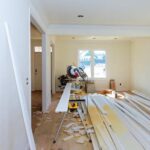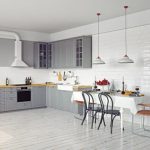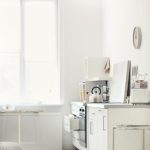The ambiance of a home music studio plays a crucial role in inspiring creativity and productivity. Creating a comfortable and stylish environment can significantly impact the quality of music production. In this article, we will explore home music studio decor ideas, including color schemes, wall art, furniture layout, lighting, soundproofing, personalization, and budget-friendly options. Whether you’re a professional musician or an aspiring producer, the right decor can elevate your home studio to new creative heights.
When designing a home music studio, it is essential to prioritize creating a space that fosters inspiration and focus. The choice of decor elements can greatly influence the mood and energy within the studio setting. From choosing the right color scheme to functional furniture and personal touches, every aspect contributes to creating an environment that stimulates artistic expression.
In the following sections, we will delve into various aspects of home music studio decor, providing practical ideas and recommendations to transform your space into an inspiring haven for music production. From DIY wall art projects to budget-friendly decor solutions, we will cover everything you need to know to enhance the ambiance of your home music studio. So get ready to jazz up your space with our comprehensive guide to home music studio decor ideas.
Choosing the Right Color Scheme
When setting up a home music studio, choosing the right color scheme is essential for creating a conducive environment for creativity and productivity. Different colors have varying effects on mood and energy, so it’s important to select colors that inspire and motivate without being overwhelming. For example, cool tones like blues and greens can create a calming atmosphere, while warmer tones like yellows and oranges can add vibrancy and warmth to the space.
To incorporate color into your home music studio decor, consider using paint to add a pop of color to the walls. You can also bring in colorful furniture such as chairs or couches to liven up the space. Additionally, accessories like throw pillows, rugs, and curtains can be used to introduce accent colors into the room. When choosing a color scheme, it’s important to consider how different hues will work together in the overall design of the studio.
To enhance the ambiance of a music studio through color, you can also use combinations of contrasting or complementary colors. For example, pairing warm tones with neutral colors can create a balanced and harmonious look in the studio. Another popular option is using monochromatic color schemes by incorporating various shades of a single color to create depth and visual interest.
In addition to these ideas, it is crucial to keep in mind that lighting plays an essential role in how colors are perceived within a room. Proper lighting can enhance the chosen color scheme while poor lighting may make certain colors appear dull or uninviting.
Task lighting options include pendants, track lights on beams or exposed pipes overheard above eye level that provide targeted illumination, desk or floor lamps with adjustable heads that brighten specific areas around equipment along with some small light fixtures behind monitors for better stereo-sound absorption purposes.
| Color Ideas | Lighting Elements |
|---|---|
| Cool tones (blues, greens) | Task lighting |
| Warm tones (yellows, oranges) | Desk or floor lamps with adjustable heads |
| Neutral Colors + Accent Colors | Pendants lights & Track lights |
Creative Wall Art and Decor
When it comes to creating a vibrant and inspiring environment in a home music studio, the use of creative wall art and decor can play a significant role. From colorful artwork to music-themed decor, the options for enhancing the ambiance of a studio space are endless. By carefully selecting and arranging wall art and decor, musicians and music producers can cultivate a space that not only reflects their personality but also stimulates creativity and productivity.
Showcasing Different Types of Wall Art
When considering wall art for a home music studio, it’s essential to explore various types that can add visual interest and set the tone for the space. This may include paintings, prints, tapestries, or even custom-made pieces that resonate with the individual’s musical style. Additionally, incorporating elements like floating shelves for displaying small instruments or decorative accents can add depth and texture to the walls.
Embracing Music-Themed Decor
One way to infuse personality into a home music studio is through music-themed decor. Vinyl record displays, concert posters, vintage speakers, or even framed album covers can create a nostalgic and visually appealing atmosphere. These items not only serve as decorative pieces but also act as conversation starters and sources of inspiration for those working within the space.
DIY Ideas for Personalized Wall Decor
For those seeking truly unique decor elements for their home music studio, DIY projects offer endless possibilities. From creating one-of-a-kind artwork using musical notes or lyrics to repurposing old instruments as wall hangings, DIY decor allows individuals to personalize their space in an affordable and meaningful way. Additionally, incorporating custom LED lighting behind artwork or shelving can further enhance the aesthetic appeal of the studio while adding a functional touch.
Ultimately, when it comes to decorating a home music studio with wall art and decor, the goal is to create an environment that not only reflects one’s musical passion but also serves as an inspiring backdrop for creativity. Incorporating personalized touches alongside music-themed decor can transform the studio into a space that inspires both work and relaxation.
Functional Furniture and Layout
When setting up a home music studio, one of the most crucial elements to consider is the furniture and layout of the space. Creating an ergonomic and efficient environment can significantly impact productivity and comfort during long hours of music production. The right furniture pieces can maximize space and functionality, while a well-thought-out layout can inspire creativity and practicality in the studio.
One of the key considerations when choosing furniture for a home music studio is multifunctionality. Investing in pieces that serve multiple purposes, such as storage ottomans that double as seating or adjustable-height desks, can help optimize limited space. Additionally, ergonomic chairs and workstations are essential for maintaining proper posture and avoiding discomfort during extended studio sessions.
In terms of layout, it’s important to arrange furniture in a way that promotes flow and accessibility within the studio. Placing equipment within arm’s reach, creating designated work zones, and ensuring adequate space for movement are all factors to consider. A well-planned layout can contribute to a seamless workflow and reduce distractions, ultimately enhancing the overall music production experience.
Providing ample storage solutions for instruments, cables, and accessories is also essential in maintaining an organized and clutter-free workspace. Incorporating shelving units, wall-mounted organizers, or rolling carts can help keep the studio tidy while making equipment easily accessible when needed.
| Category | Example |
|---|---|
| Furniture | Adjustable-height desks |
| Furniture | Ergonomic chairs |
| Layout | Creating designated work zones |
| Storage Solutions | Wall-mounted organizers |
Lighting for Ambiance and Functionality
When setting up a home music studio, one of the most important aspects to consider is the lighting. The right lighting not only creates ambiance but also serves a functional purpose in a music studio. Here are some tips for selecting and utilizing lighting to enhance your home music studio decor ideas:
- Task Lighting: Incorporate task lighting, such as adjustable desk lamps or track lighting, to illuminate specific work areas like the mixing desk or instrument station. This type of lighting is essential for creating a well-lit workspace and minimizing eye strain during long recording or production sessions.
- Ambient Lighting: Use ambient lighting to establish the overall mood and atmosphere of the studio. Consider installing dimmable overhead lights or LED strips to create a warm and inviting ambiance. Additionally, floor lamps with soft, diffused light can add a cozy touch to the space.
- Smart Lighting Technology: Consider investing in smart lighting systems that allow you to customize the color temperature and intensity of the lights according to your preferences. Smart bulbs and fixtures can be controlled remotely via smartphone apps, giving you flexibility in setting the mood for different creative tasks.
In addition to these specific types of lighting, it’s important to also consider natural light sources. If possible, position your studio space near windows to take advantage of natural light during daytime sessions. Overall, a well-balanced combination of task, ambient, and natural lighting will not only enhance the aesthetic appeal of your home music studio but also contribute to a productive and inspiring work environment.
Soundproofing and Acoustic Treatment
Creating an optimal sound environment is crucial for any home music studio, and soundproofing and acoustic treatment play a significant role in achieving this goal. By addressing issues such as sound reflections and outside noise, musicians can enhance the quality of their recordings and improve their overall experience in the studio.
Importance of Soundproofing
Soundproofing is essential for minimizing the intrusion of external noises, such as traffic or household activities, which can disrupt the recording process. Additionally, it helps prevent sound leakage to other parts of the house or neighboring properties, allowing musicians to work without disturbing others.
Acoustic Treatment for Recording Quality
In addition to soundproofing, applying acoustic treatment within a home music studio is crucial for improving the quality of recordings. This involves managing reverberations and controlling unwanted frequencies to achieve a balanced and clear sound. For example, installing bass traps in corners and using acoustic panels on walls can help absorb excessive sound reflections.
Affordable DIY Solutions
For those working with budget constraints, there are several affordable DIY solutions for soundproofing and acoustic treatment. This may include repurposing materials like egg cartons for makeshift acoustic panels or using heavy drapes or blankets to dampen sound reflections. While professional acoustic products offer superior performance, these creative alternatives can provide viable options for home studio owners looking to improve their acoustics without breaking the bank.
By considering both soundproofing and acoustic treatment in their home music studio decor ideas, musicians can create an environment that not only looks great but also significantly enhances their creativity and productivity during music production.
Personalizing the Space With Music Memorabilia
When creating a home music studio, it’s essential to infuse the space with personal touches and music memorabilia. Personalizing the studio not only adds character but also creates an inspiring environment for creativity and innovation. Here are some ideas for incorporating music memorabilia into the decor of your home music studio:
- Display Your Instruments: Showcasing your musical instruments can add a unique and personal touch to the studio. Whether it’s a vintage guitar, a beloved piano, or a collection of percussion instruments, displaying these items not only adds visual interest but also serves as a reminder of the creative potential within the space.
- Music-Themed Artwork: Consider adding artwork that reflects your musical tastes and inspirations. This could include posters from favorite concerts, album covers, or even original art pieces that capture the essence of music.
- Personal Collections: If you have a collection of vinyl records, CDs, or other music-related items, consider incorporating them into the decor. This could be through shelving displays, wall mounts, or custom storage solutions that showcase your collection while keeping it organized.
Adding personal touches to your home music studio creates an environment that is uniquely yours and reflective of your musical journey. Whether you’re an aspiring musician, a producer, or simply someone who enjoys creating music as a hobby, surrounding yourself with meaningful music memorabilia can enhance the overall energy of the space.
In addition to serving as decorative elements, incorporating personal touches and memorabilia into your home music studio can also serve as sources of inspiration during creative sessions. Being surrounded by objects and items that hold sentimental value can provide motivation and spark new ideas during recording or songwriting sessions.
Ultimately, personalizing your home music studio with music memorabilia is about creating a space that resonates with you on a deep level and fosters creativity. By infusing your personality and passions into the decor of your studio, you are not just building a functional workspace but also crafting an immersive environment designed to fuel artistic expression.
Budget-Friendly Decor Ideas
Decorating a home music studio can be an exciting and inspiring project, but it’s important to do so within budget constraints. Fortunately, there are plenty of budget-friendly decor ideas that can help create a stylish and functional studio space without breaking the bank. When it comes to home music studio decor ideas, creativity and resourcefulness can go a long way in achieving the desired ambiance without overspending.
One cost-effective decor idea for a home music studio is to repurpose existing items. For example, old bookshelves or storage units can be transformed into stylish record storage or equipment stands with a fresh coat of paint and some creative organization. Additionally, using items from other parts of the home – such as throw pillows, rugs, and curtains – can help add warmth and comfort to the studio space without requiring new purchases.
Another budget-friendly option for decorating a home music studio is to find affordable decor options. This could involve shopping at thrift stores or online marketplaces for unique furniture pieces or decorative items that fit the studio’s aesthetic. DIY projects also offer a great opportunity for saving money on decor – whether it’s creating custom wall art, repurposing old instruments into decor accents, or making homemade soundproofing panels using affordable materials.
While it’s important to stay within budget when decorating a home music studio, investing in key decor elements that contribute to productivity and inspiration is still essential. By being strategic with budget allocation and taking advantage of cost-effective decor ideas, it is possible to create a stylish and personalized studio space where creativity can thrive.
Conclusion
In conclusion, the decor of a home music studio plays a crucial role in creating a comfortable and inspiring environment for music production. From choosing the right color scheme to incorporating creative wall art and personalizing the space with music memorabilia, every aspect of decor contributes to the mood, energy, and functionality of the studio.
Additionally, functional furniture layout, lighting for ambiance and functionality, soundproofing, and budget-friendly decor ideas all come together to enhance creativity and productivity in a home studio setting.
Aspiring musicians and producers are encouraged to prioritize thoughtful decor in their home music studios. By carefully considering color schemes, wall art, furniture layout, lighting fixtures, soundproofing, acoustic treatment, and personalization with music memorabilia, individuals can create a space that not only reflects their personality but also inspires their creative pursuits. The combination of these elements can have a profound impact on the overall atmosphere of the studio and ultimately contribute to an environment conducive to productivity and innovation.
In closing, readers are invited to share their own home music studio decor ideas and experiences. By exchanging tips and insights on creating an ideal studio space for music production, individuals can continue to inspire and support one another in their creative endeavors. With thoughtful attention to decor elements that cater to both aesthetic appeal and practical functionality, every musician can craft a home studio that serves as a stimulating haven for musical expression.

I’m thrilled to be your companion on this exciting journey through the world of home decor and design. With a passion for turning houses into homes and a keen eye for the finer details, I’m here to help you transform your living spaces into beautiful, functional, and meaningful havens.





